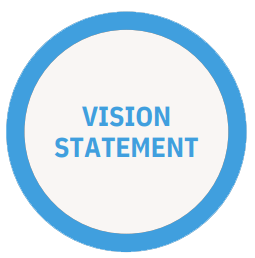Legal Disclaimer
Not financial advice or recommendation
Limitation of Liability
Compliance with TAX Obligations
Executive Summary
What is Decentra Networks?
Our Vision


Community-Focused
Growing the Decentra Networks by the people for the people

Innovation
To be the world's most crypto-centric platform

All in one Ecosystem
Providing all facility under an umbrella
Problem with Centralized storage
1. Data breaches:
2. Data outages:
3. Rising storage prices:
4. Lack of ownership:
5. Censorship & monitoring:
Solution with Decentra Networks
Decentralized cloud storage in Decentra networks is when persons or groups who are motivated to join, store and maintain data accessibility store data on a decentralized network across numerous locations. Anyone is welcome to participate, they are kept honest by smart contracts, and they are rewarded for doing so with Decentra tokens.
1. Low Costs of Storage
2. Fair Market Prices
3. Faster Speeds
4. Greater Privacy and Security
5. Minimal File Loss
How Decentra works?
A storage provider and client agreement are known as a file contract. The file's Merkle root hash is the foundation of a file contract. The file is divided into fixed-sized parts, which are then hashed into a Merkle tree. Storage proofs may be checked using the root hash and the file's overall size.
To satisfy file contracts, storage proof transactions are frequently provided. Every storage proof is directed towards a particular file contract. A storage proof simply needs a contract ID and the proof data; it doesn't need any inputs or outputs.
In order to reject unfavorable conditions or undesirable data (such as unlawful ones), a contract must be signed between the storage provider and their customer. Until the complete material has been submitted to them, the provider may also decline to sign a contract.
Decentra's main objective is to offer a blockchain that upholds storage contracts. The mining reward, however, is only indirectly linked to the total value of contracts being created. That will occur through a smart contract, and Decentra will use from Decentra token.
Why Decentra networks?
Transparency & Immutability
Community
Blockchain compliant
Tokenomics
Name
Token
Blockchain
Ethereum
Total Supply
Symbol
Contract
Our Roadmap to success
- Decentra Database structuring
- Decentra Infrastructure Development
- Decentra Incentive Testnet Features Enrichment
- Decentra Computation TestNet
- Decentra Storage TestNet
- Decentra Code Auditing
- Decentra GroveChain Smart contract deployment
- Decentra Computation Mainnet
- Decentra Storage Mainnet
- Decentra Mining Pool Console
- Decentra Private cloud provider partnership
- Decentra EcoSystem Integration
- Decentra DCN Mobile App development
- Decentra Major partnership
- Decentra Major Network Expansion
- Decentra Network (Own) Data Center integration
- Decentra Networks mining pool expansion
